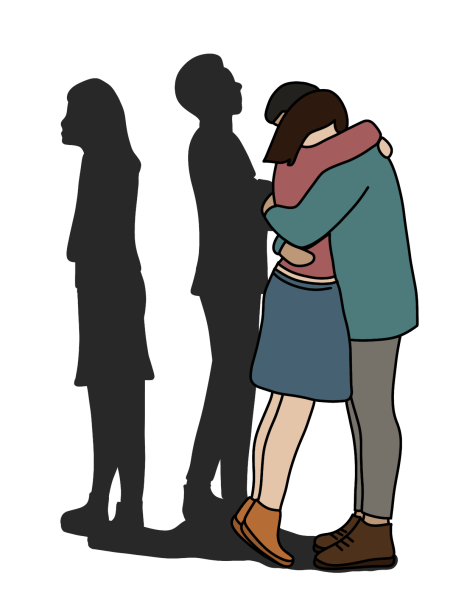Minus the City: Shattered Hope
People say you never forget your first love. Maybe it’s because of the fluttering butterflies in your stomach, the nervous tick of your heartbeat or just the idea that there is someone in the world who looks at you the way no one else does. All of these emotions, especially when experienced for the first time, create a sensation that will never be replicated and is embedded into your memory forever. But what really distinguishes your first love from all others is that it’s typically your first breakup as well.
Breakups, in general, can be painful, traumatic and isolating. When you haven’t experienced love before, you don’t quite understand the downfalls of your romantic encounters. It’s much easier to take a leap of faith when you don’t know how painful it is to fall. After you fall from Cloud Nine to the concrete reality of heartache, you suddenly become much more protective and defensive of your feelings. You are no longer as willing to jump into any sort of committed relationship because the pain from your last heartbreak has left a wound deep within you.
I think it goes without saying that one of the biggest benefits to hookup culture, especially at Colgate, is the avoidance of pain. I have overheard, listened to and engaged in so many conversations which imply that the hookup culture is better than any other form of a relationship because you are “guaranteed” not to get hurt. If you can casually have sex with someone, you get all the benefits of a relationship without the difficult complications of having to care for someone else.
In my life, and in many other Colgate students’ lives, the fear of getting hurt (again) has left an inclination to partake in the hookup culture rather than seek romantic relationships. On this campus, people often deliberately choose to hookup with someone they don’t have serious or strong feelings for. That way, they don’t have to worry about all of the pain that would come from a breakup. However, I believe that our vulnerabilities, disappointments and even heartbreaks bring us closer to what we really need. When we are vulnerable with someone else, we really are just being honest with ourselves. If we shut ourselves out from close relationships with others for the fear of getting hurt again, we’re only doing ourselves a disservice. When all of our relationships are superficial and meaningless, what happens when we meet someone we really care about?
Think of it like this: when you break a vase, what happens? Shattered pieces of glass scatter against the ground creating a mosaic of jagged edges. If you take those pieces and try to reassemble the vase, the first thing you notice are its cracks. Sure, the china has reverted to its original form, but anyone who takes a closer look at the vase can easily see the crack marks written all throughout its facade. However, if you take those pieces of glass, and throw them into the ocean, something beautiful is created. Those once broken edges have now become the foundation for new art: sea glass. This new form of art, entirely different from what it used to be, is still undeniably beautiful. But in order to harness its potential for future beauty, it had to let go of its original form and identity.
We’re all like glass. We all have the ability to be shattered into a million different pieces, falling into disarray. And if you’re like me, you probably have already gone through a feeling like this. But trying to act like we aren’t broken, aren’t disappointed, and aren’t human only creates a comical facade that distorts our true beauty. There’s no shame in feeling broken. It’s only when we are broken that we have the opportunity to reinvent ourselves into something magical, extraordinary and even more beautiful than our original selves.
Contact Helen Misiewicz at [email protected].








